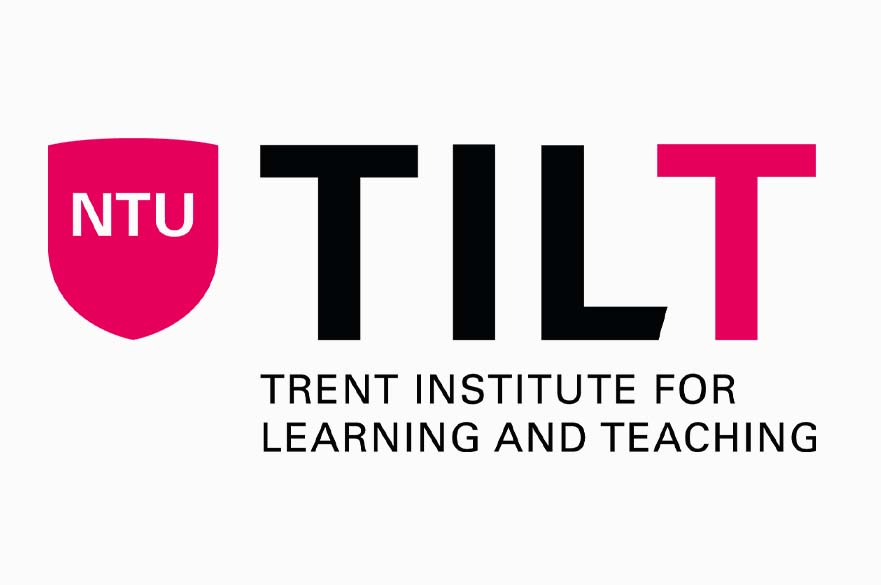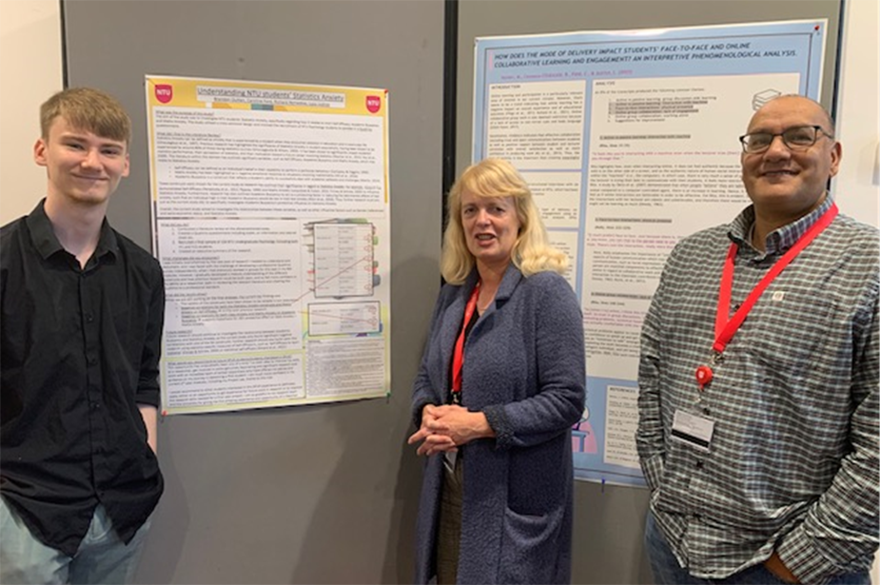Group
Education, Motivation and Learning Research Group (EDMAL)
Unit(s) of assessment: Psychology, Psychiatry and Neuroscience; Education
Research theme(s): Health Innovation
School: School of Social Sciences
Overview
The Education, Motivation and Learning (EDMAL) Group is part of the Centre for Research in Language, Education and Developmental Inequalities.
The aim of the Education, Motivation and Learning (EDMAL) Group is to promote and support research examining the experiences of students across the educational lifespan, with a view to understanding how to improve their learning and motivation.
Currently, we have four research sub-groups:
- Test-Anxiety Group (TAG) which examines individual differences and predictors of anxiety in school and higher education
- Parental Motivational Messaging (PMM) which examines how students respond to their parent' motivation messages
- Digital Skills Group (DiSK) which examines the types of individuals who most worry about their ability to engage with online technology.
- Flourish, which examines how we can enhance the mental health of students to help facilitate their own success.
The aim of all the groups is to understand the nature of the pedagogic interventions that not only reduce anxiety, but enhance mental health and improve academic performance.
You can find out more about the EDMAL research group in this presentation. You can learn more about active and upcoming projects in this presentation.
You can follow the work of EDMAL on Twitter @EDMAL_NTU.
EDMAL and TILT Partnership

As much of the work in EDMAL covers scholarship and practice, we have partnered with the TILT Practice and Scholarship Group, Student Motivation and Engagement (SME). Members of EDMAL and SME will attend the same meetings with a view to optimising your scholarship, practice and research opportunities and ambitions.
Our sub-groups

Test Anxiety Group (TAG)
The TAG research sub-group is led by Dr Caroline Ford, Dr Lucy Justice, and Dr Richard Remedios.
Students experience anxiety when they engage in a range of tasks, and especially those where they have low confidence. Evidence consistently shows that low confidence is a strong predictor of current motivation, and ultimately academic performance.
Our current research focuses on the domain of statistics and mathematics because these subjects are the ones where students typically experience the lowest confidence and the highest anxiety.
We are running longitudinal studies to first identify the types of students most at risk, and then to see how their anxiety changes across a module.
What are we interested in researching?
The TAG group is interested in understanding the types of students who experience anxiety. We want to know about which types of students are anxious, why they are anxious, what they anxious about, and how their anxiety can be reduced.
Further resources
How to motivate students during exam time, according to psychologists.
Parental Motivational Messages (PMM)
The PMM sub-group is led by Dr Richard Remedios.
When studying for high-stakes exams, students receive encouragement from their teachers, but research shows that these teacher messages are received very differently depending on the student (Putwain, Symes, Nicholson & Remedios, 2020).
Moreover, this research shows that students' differential experiences of teacher encouragement go on to influence their subsequent motivations and performance.
What are we interested in researching?
It is not only teachers who encourage students. Students also receive encouragement at home from their caregivers.
What we are keen to examine is the effects of these types of on students, what actual messages parents are giving, whether these messages are different depending on stage of education (primary, secondary, higher education), and the cultural context.
Digital Skills (DiSK)
The DiSK research sub-group is led by Dr Sarah Buglass and Dr Lucy Justice.
The development and application of key digital skills is fast becoming a ubiquitous requirement with teaching, learning and assessment opportunities increasingly reliant on digital technology.
Furthermore, the emergency response teaching experienced during the Covid-19 pandemic has accelerated the need for students and teachers to possess a level of digital literacy that stretches far beyond basic word processing and presentation skills.
Whilst these technologies can have huge benefits for learning, we must be cautious in assuming that learners from particular generations have a natural capacity to use these tools to support their learning.
Our current research considers how demographic factors and individual differences can influence digital literacy levels and digital engagement with learning across learners and teaching staff.
What are we interested in researching?
The DiSK group is interested in developing an understanding of the potential enablers and barriers associated with the acquisition of digital literacy.
The sub-group are also keen to explore how student and teaching staff motivations can influence engagement with digital learning opportunities, e.g., online learning for a university course.
Further resources

Stephen Eccles, Sub-Group Lead
Flourish: Enhancing the mental health of students to help facilitate their own success
This sub-group is led by Stephen Eccles.
Students who are experiencing poor mental health is a priority for UK higher education providers. This is based on evidence that suggests that students who experience poor mental health are likely to experience disruption to their education, and without the necessary support, these students are then more likely to terminate their studies.
Our current research is focusing on student withdrawal and the role that mental health plays within this transition. This includes gaining insight into the lead up, during and after a student has withdrawn from university. This is an incredibly exciting time for the group as this longitudinal data is not often captured and the hope is that it can be used to make meaningful change in higher education.
What are we interested in researching?
This group is keen to gain insight into specific populations of students that are most at risk of developing poor mental health. Examples could include first in their family students to attend university, (currently being studied by Stephen Eccles), learners with caring responsibilities, students with pre-existing mental health issues, or any context where there are challenges to mental health . We need to understand why these populations suffer the most with poor mental health, who plays a role in their social support network and ultimately, how we can help these students enhance their mental health to enable them to reach their full potential.
If you are interested in joining this group, email Stephen.Eccles@ntu.ac.uk.
Thought pieces
- Early Years Children - Seen and Not Heard by Beccie Davies-Yates
- WONKE Blog: Our duty of care must manifest when it matters most by Stephen Eccles
Related staff
Publications
Putwain, D. W., Symes, W., Laura J. Nicholson, L. J., and Remedios, R. (2020). Teacher motivational messages used prior to examinations: What are they, how are they evaluated, and what are their educational outcomes? Advances in Motivation Science, Elsevier. https://doi.org/10.1016/bs.adms.2020.01.001.
Symes, W., Putwain, D. W, and Remedios, R., (2015). The enabling and protective role of academic buoyancy in the appraisal of fear appeals used prior to high stakes examinations. School Psychology International, 36, 605–619. DOI: 10.1177/0143034315610622.
Putwain, D. W., and Remedios, R. (2014b). The Scare Tactic: Do Fear Appeals predict motivation and exam scores? School Psychology Quarterly, 29, 503-516. DOI: 10.1037/spq0000048
Da Costa, L., & Remedios, R. (2014). Different Methods, Different Results: Examining the Implications of Methodological Divergence and Implicit Processes for Achievement Goal Research. Journal of Mixed Methods Research, 8, 162 - 179. DOI: 10.1177/1558689813495977.
Gill, P.,and Remedios, R. (2013). Operationalising on and off-task behaviours in Educational Research. Cambridge Journal of Education, 43, 199-222. COI:10.1080/0305764X.2013.767878.
Remedios, R. & Lieberman, D.A. (2008). I liked your course because you taught me well: The influence of grades, workload, expectations and goals on students' evaluations of teaching. British Educational Research Journal, 34, 91-115.
Lieberman, D.A. & Remedios, R. (2007) Do Undergraduates' Motives for Studying Change as they Progress through their Degrees? British Journal of Educational Psychology, 77, 379-395.
Related Groups and Centres
The Education, Motivation and Learning (EDMAL) Group is part of the Centre for Research in Language, Education and Developmental Inequalities.